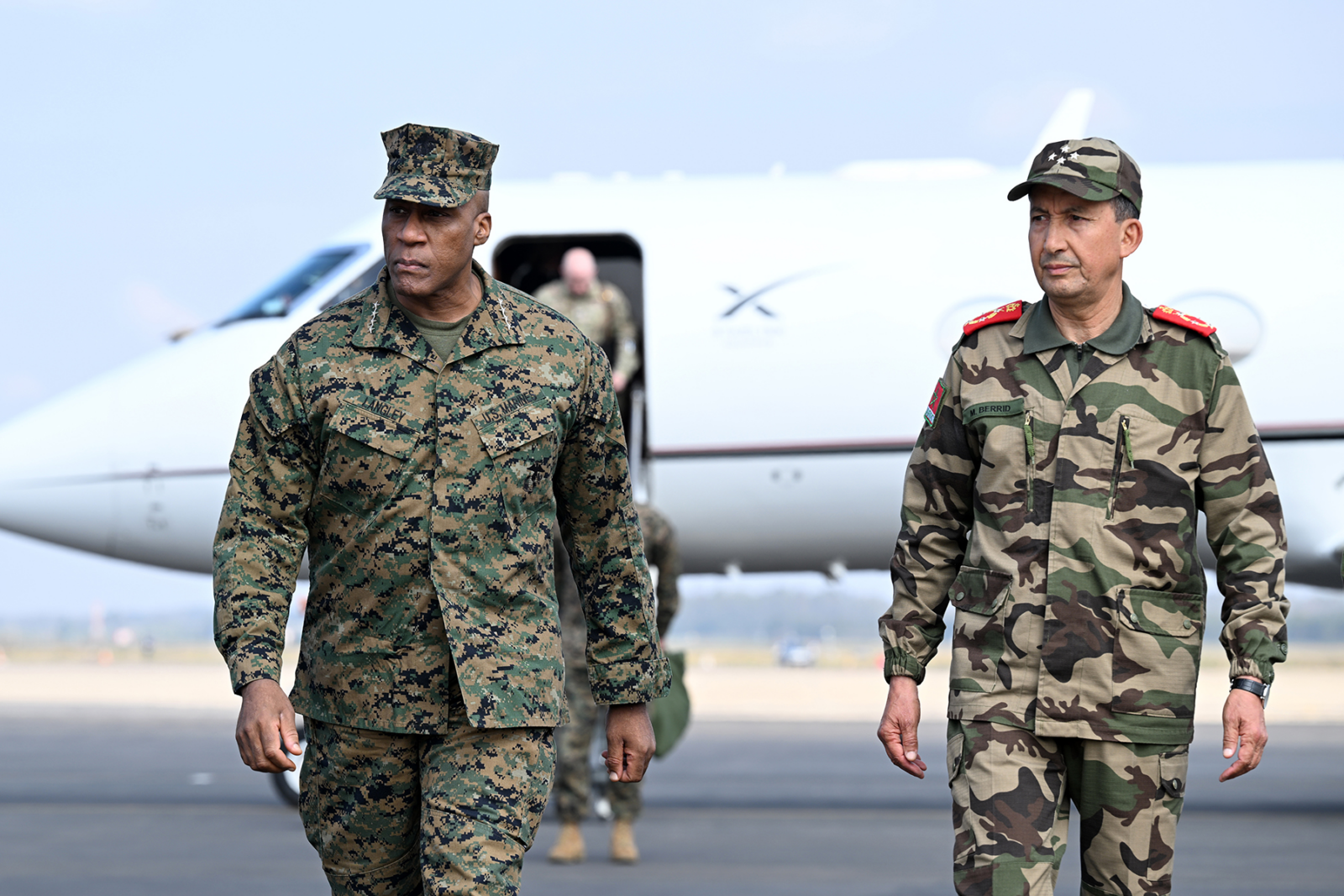Home » US AFRICOM to hold African Lion joint exercises in Morocco
US AFRICOM to hold African Lion joint exercises in Morocco

This week, the U.S. began the next series of the “African Lion” joint military exercises in Morocco. The joint exercise, in which 30 other countries (primarily African states) will participate, will continue in Morocco through May 23.
African Lion is one of two joint training missions conducted by the United States African Command (AFRICOM), the unified combatant command responsible for military relations in Africa. Since AFRICOM’s establishment in 2007, the command has primarily focused on disrupting the networks of terrorist groups such as Boko Haram and al-Shabaab. To that end, the African Lion exercise has served as an indicator of the U.S. military’s priorities in Africa for the next 3 to 5 years. Recent African Lion iterations have emphasized maritime security—amid concerns over piracy and Chinese influence along key trade routes—and combined arms operations designed to counter asymmetric threats.
This year’s exercise comes amid uncertainty over the future of U.S. engagement in Africa. Reports last month suggested the Trump administration is considering folding AFRICOM’s responsibilities under U.S. European Command (EUCOM). As of this writing, no Assistant Secretary of State for African Affairs or NSC Director for Africa has been appointed, further reinforcing perceptions that Africa policy is being deprioritized.
As Congress prepares the federal budget for FY2026, the African Lion exercises may offer AFRICOM an opportunity to underscore both its operational relevance and the strategic importance of U.S. engagement in Africa. In recent congressional testimony, AFRICOM commander General Michael Langley emphasized the region’s role in securing global supply chains for critical minerals and noted the need for enhanced intelligence, surveillance, and reconnaissance (ISR) capabilities to monitor and protect access to key deposits. If African Lion emphasizes ISR integration, AFRICOM could align its posture with the Trump administration’s stated priority of securing critical mineral access—particularly in light of the recent agreement with the Democratic Republic of Congo, which links U.S. security support to preferential mineral extraction rights.
Will McChesney is a foreign affairs analyst specializing in Russia-MENA relations. A recent graduate of Georgetown University’s School of Foreign Service, his work also focuses on strategic use of economic tools such as sanctions and export controls.

